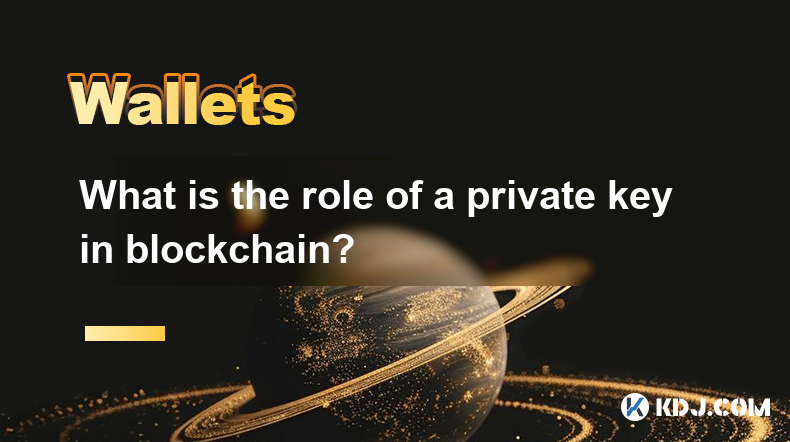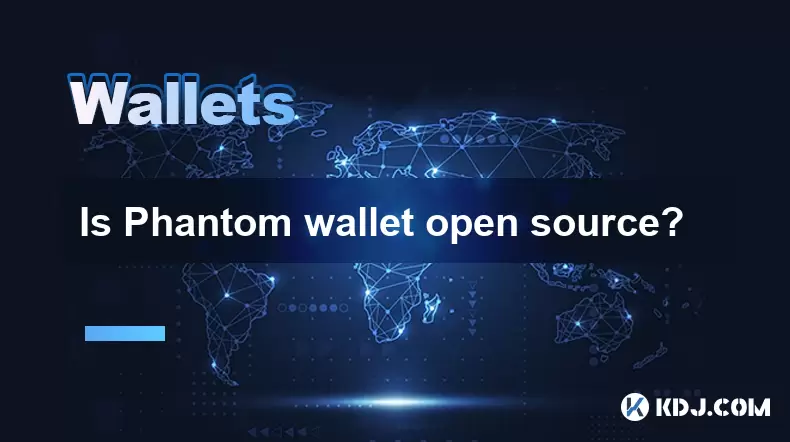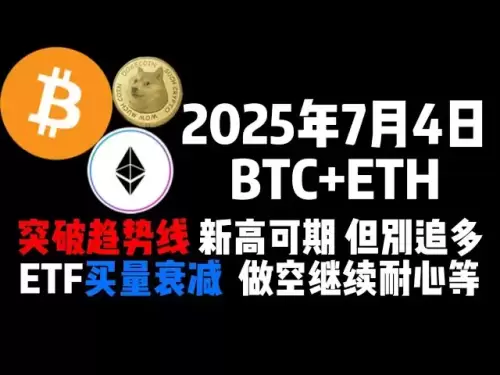-
 Bitcoin
Bitcoin $107,758.1435
-1.45% -
 Ethereum
Ethereum $2,490.6114
-3.32% -
 Tether USDt
Tether USDt $1.0004
0.00% -
 XRP
XRP $2.2042
-2.04% -
 BNB
BNB $651.4818
-1.12% -
 Solana
Solana $145.8782
-3.02% -
 USDC
USDC $0.9999
0.00% -
 TRON
TRON $0.2819
-1.39% -
 Dogecoin
Dogecoin $0.1621
-4.58% -
 Cardano
Cardano $0.5658
-4.18% -
 Hyperliquid
Hyperliquid $37.8181
-6.63% -
 Sui
Sui $2.8404
-4.91% -
 Bitcoin Cash
Bitcoin Cash $481.3703
-2.30% -
 Chainlink
Chainlink $13.0043
-4.79% -
 UNUS SED LEO
UNUS SED LEO $9.0464
0.26% -
 Avalanche
Avalanche $17.6115
-4.39% -
 Stellar
Stellar $0.2359
-2.11% -
 Toncoin
Toncoin $2.7507
-3.93% -
 Shiba Inu
Shiba Inu $0.0...01126
-4.41% -
 Litecoin
Litecoin $86.1256
-3.27% -
 Hedera
Hedera $0.1530
-3.13% -
 Monero
Monero $312.7785
-2.81% -
 Dai
Dai $1.0000
-0.01% -
 Ethena USDe
Ethena USDe $1.0001
-0.02% -
 Polkadot
Polkadot $3.3287
-5.55% -
 Bitget Token
Bitget Token $4.3840
-4.00% -
 Uniswap
Uniswap $6.8370
-10.63% -
 Pepe
Pepe $0.0...09548
-4.25% -
 Aave
Aave $260.2526
-6.11% -
 Pi
Pi $0.4658
-5.45%
What is the role of a private key in blockchain?
Private keys, crucial for cryptocurrency ownership, are cryptographic secrets enabling transaction authorization and asset security. Losing a private key means irreversible loss of funds; secure storage is paramount.
Mar 17, 2025 at 04:40 pm

Key Points:
- Private keys are the foundation of cryptocurrency ownership and control. They are essential for authorizing transactions and securing digital assets.
- Private keys are cryptographic secrets, analogous to a password, but far more secure. Losing a private key means losing access to the associated cryptocurrency.
- Private keys interact with public keys and digital signatures to verify transactions on the blockchain.
- Secure storage and management of private keys are crucial to prevent theft and loss.
- Different methods exist for managing private keys, each with its own security trade-offs.
What is the role of a private key in blockchain?
The blockchain's security and functionality fundamentally rely on the concept of private keys. They serve as the ultimate proof of ownership for your cryptocurrency holdings. Think of it as the digital equivalent of a physical key to your assets. Without the correct private key, you cannot access or transfer your cryptocurrency. This cryptographic key provides a level of security that traditional financial systems often struggle to match.
How does a private key work?
A private key is a long, randomly generated string of characters. This string is mathematically linked to a corresponding public key, which is derived from the private key through cryptographic algorithms like elliptic curve cryptography (ECC). The public key can be shared publicly, as it's not needed to spend funds. However, the private key must remain absolutely secret. The relationship between these keys is one-way; you cannot derive the private key from the public key.
The role of private keys in transactions:
When you want to send cryptocurrency, your wallet software uses your private key to create a digital signature. This signature proves that you authorize the transaction. The blockchain network verifies this signature using your corresponding public key. If the signature is valid, the transaction is added to the blockchain, transferring the cryptocurrency to the recipient's address. This entire process ensures the integrity and security of each transaction.
Different ways to manage private keys:
- Hardware Wallets: These devices store your private keys offline, offering the highest level of security. They act as a secure enclave, protecting your keys from malware and online attacks. Examples include Ledger and Trezor.
- Software Wallets: These wallets store your private keys on your computer or mobile device. While convenient, they are more susceptible to malware and hacking. It is crucial to choose reputable software wallets and keep your device secure.
- Paper Wallets: These wallets store your private key and public key as printed QR codes or text. They are secure offline but can be lost or damaged easily. Proper storage is paramount.
- Brainwallets: These involve memorizing your private key. While offering ultimate control, it's extremely risky due to the potential for human error and memory loss.
- Key Management Systems: Advanced systems for managing multiple keys and addresses, typically used by organizations or businesses with significant cryptocurrency holdings.
Security Considerations for Private Keys:
The security of your cryptocurrency directly depends on the security of your private key. Never share your private key with anyone. Treat your private key with the same level of care you would treat your physical cash or valuable documents. Any compromise of your private key results in the irreversible loss of your funds.
Be wary of phishing scams, malware, and other attacks that aim to steal your private keys. Regularly update your software and keep your antivirus software current.
Understanding Public Keys:
The public key is the recipient address that others use to send you cryptocurrency. It's derived from your private key and is essentially your digital wallet address. You can share your public key without compromising your security, as it does not allow access to your funds.
Private Key Recovery:
Most wallets offer a recovery mechanism using a seed phrase or mnemonic words. This phrase is a set of words that can be used to reconstruct your private keys if you lose access to your wallet. Keep this seed phrase safe and secure, in a separate location from your wallet.
Frequently Asked Questions:
Q: What happens if I lose my private key?
A: If you lose your private key, you lose access to the cryptocurrency associated with that key. There is no way to recover it, making secure storage crucial.
Q: Can I share my public key?
A: Yes, you can safely share your public key. It is your cryptocurrency address, and it's necessary for receiving funds.
Q: Are hardware wallets completely secure?
A: While hardware wallets offer a high level of security, they are not entirely immune to all threats. Physical theft or sophisticated attacks remain possibilities.
Q: How often should I back up my seed phrase?
A: It's best practice to back up your seed phrase immediately after receiving it and regularly create additional backups in separate, secure locations.
Q: What is a seed phrase?
A: A seed phrase (also known as a mnemonic phrase) is a list of words that acts as a backup for your private keys. It allows you to recover your wallet if you lose access to it.
Q: Can I use the same private key for multiple wallets?
A: No, each wallet should have its own unique private key. Using the same key across multiple wallets severely compromises security.
Q: What are the risks associated with software wallets?
A: Software wallets are vulnerable to malware, hacking, and device loss. Their security is dependent on the security of the device they are stored on.
Q: How do I choose a secure wallet?
A: Research reputable wallet providers and read reviews before selecting a wallet. Consider factors like security features, reputation, and user reviews.
Disclaimer:info@kdj.com
The information provided is not trading advice. kdj.com does not assume any responsibility for any investments made based on the information provided in this article. Cryptocurrencies are highly volatile and it is highly recommended that you invest with caution after thorough research!
If you believe that the content used on this website infringes your copyright, please contact us immediately (info@kdj.com) and we will delete it promptly.
- Bitcoin's Pattern Break: Are HODLers the Key to the Next Surge?
- 2025-07-04 18:50:12
- Bitcoin Price, Trump's Bill, and the $150K Dream: A NYC Take
- 2025-07-04 19:50:12
- Ethereum, LILPEPE, and the July Bounce: Will Pepe Steal ETH's Thunder?
- 2025-07-04 19:10:12
- Binance Institutional Loans: Unlocking 4x Leverage and Zero Interest for Whales
- 2025-07-04 19:15:12
- Bitcoin Bull Run: Analysts Eye Peak in Late 2025?
- 2025-07-04 19:20:13
- Pepe Indicators, Bullish Forecast: Can the Meme Coin Rally?
- 2025-07-04 19:25:12
Related knowledge

How to cancel a pending transaction in Phantom wallet?
Jul 03,2025 at 07:21pm
Understanding Pending Transactions in Phantom WalletA pending transaction in the Phantom wallet occurs when a user initiates a transfer or interaction with the Solana blockchain, but it hasn't yet been confirmed by the network. This can happen due to various reasons such as low transaction fees, network congestion, or incorrect gas settings. It's import...

How to see the estimated value of my tokens in Phantom wallet?
Jul 04,2025 at 12:21am
What is Phantom Wallet?Phantom wallet is one of the most popular cryptocurrency wallets designed for the Solana blockchain. It allows users to store, send, receive, and manage various tokens built on Solana, including SPL tokens and NFTs. The wallet offers a user-friendly interface, making it accessible for both beginners and advanced users in the crypt...

How to lock my Phantom wallet extension?
Jul 03,2025 at 11:14am
What Is the Phantom Wallet and Why Lock It?The Phantom wallet is a popular non-custodial cryptocurrency wallet designed for interacting with the Solana blockchain. Supporting both browser extensions and mobile apps, Phantom allows users to store, send, receive, and stake SOL tokens, as well as interact with decentralized applications (dApps). Securing y...

Does Phantom wallet offer two-factor authentication (2FA)?
Jul 03,2025 at 09:00am
Understanding Phantom Wallet and Its Security FeaturesPhantom wallet is a widely used non-custodial cryptocurrency wallet that supports the Solana blockchain. It allows users to store, send, receive, and interact with decentralized applications (dApps) seamlessly. As security is a top priority for any crypto wallet user, security features like two-facto...

What is "rent" on Solana and how does it affect my Phantom wallet?
Jul 02,2025 at 08:35pm
Understanding 'Rent' on SolanaIn the context of Solana, the term 'rent' refers to a storage fee that users pay for maintaining data on the blockchain. Unlike Ethereum, where storage costs are paid once via gas fees during contract deployment, Solana implements a recurring cost model to ensure efficient usage of network resources. This means that any acc...

Is Phantom wallet open source?
Jul 03,2025 at 12:29am
What is Phantom Wallet?Phantom wallet is a non-custodial cryptocurrency wallet primarily designed for the Solana blockchain. It allows users to store, send, receive, and interact with decentralized applications (dApps) on the Solana network. The wallet is available as a browser extension and mobile application, offering a seamless experience for both be...

How to cancel a pending transaction in Phantom wallet?
Jul 03,2025 at 07:21pm
Understanding Pending Transactions in Phantom WalletA pending transaction in the Phantom wallet occurs when a user initiates a transfer or interaction with the Solana blockchain, but it hasn't yet been confirmed by the network. This can happen due to various reasons such as low transaction fees, network congestion, or incorrect gas settings. It's import...

How to see the estimated value of my tokens in Phantom wallet?
Jul 04,2025 at 12:21am
What is Phantom Wallet?Phantom wallet is one of the most popular cryptocurrency wallets designed for the Solana blockchain. It allows users to store, send, receive, and manage various tokens built on Solana, including SPL tokens and NFTs. The wallet offers a user-friendly interface, making it accessible for both beginners and advanced users in the crypt...

How to lock my Phantom wallet extension?
Jul 03,2025 at 11:14am
What Is the Phantom Wallet and Why Lock It?The Phantom wallet is a popular non-custodial cryptocurrency wallet designed for interacting with the Solana blockchain. Supporting both browser extensions and mobile apps, Phantom allows users to store, send, receive, and stake SOL tokens, as well as interact with decentralized applications (dApps). Securing y...

Does Phantom wallet offer two-factor authentication (2FA)?
Jul 03,2025 at 09:00am
Understanding Phantom Wallet and Its Security FeaturesPhantom wallet is a widely used non-custodial cryptocurrency wallet that supports the Solana blockchain. It allows users to store, send, receive, and interact with decentralized applications (dApps) seamlessly. As security is a top priority for any crypto wallet user, security features like two-facto...

What is "rent" on Solana and how does it affect my Phantom wallet?
Jul 02,2025 at 08:35pm
Understanding 'Rent' on SolanaIn the context of Solana, the term 'rent' refers to a storage fee that users pay for maintaining data on the blockchain. Unlike Ethereum, where storage costs are paid once via gas fees during contract deployment, Solana implements a recurring cost model to ensure efficient usage of network resources. This means that any acc...

Is Phantom wallet open source?
Jul 03,2025 at 12:29am
What is Phantom Wallet?Phantom wallet is a non-custodial cryptocurrency wallet primarily designed for the Solana blockchain. It allows users to store, send, receive, and interact with decentralized applications (dApps) on the Solana network. The wallet is available as a browser extension and mobile application, offering a seamless experience for both be...
See all articles

























































































